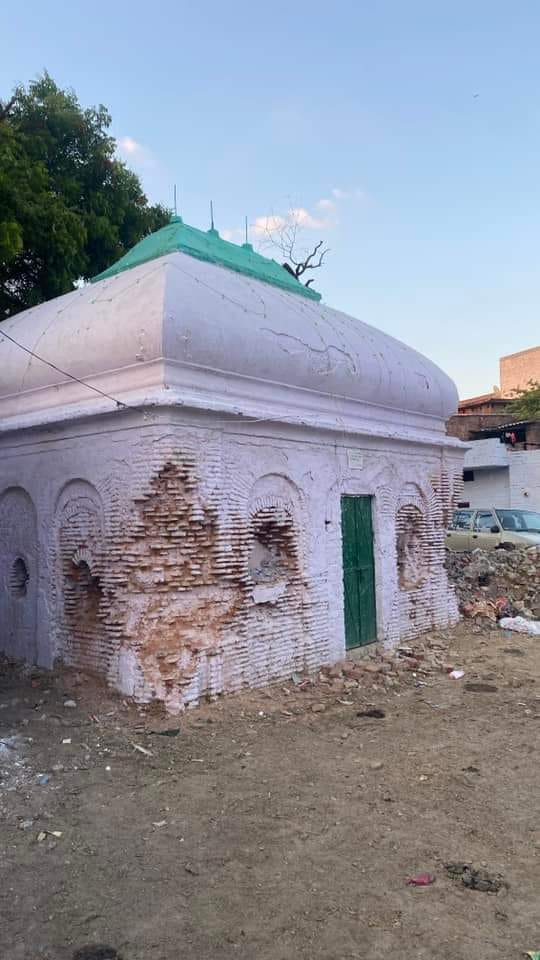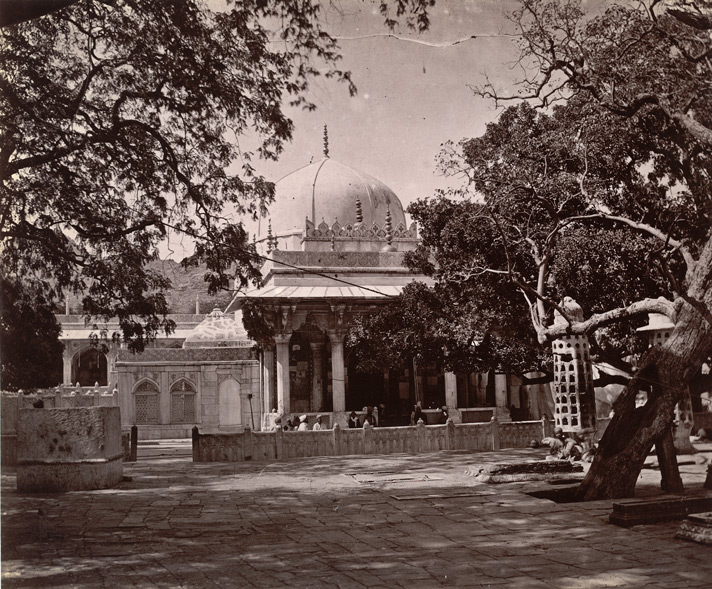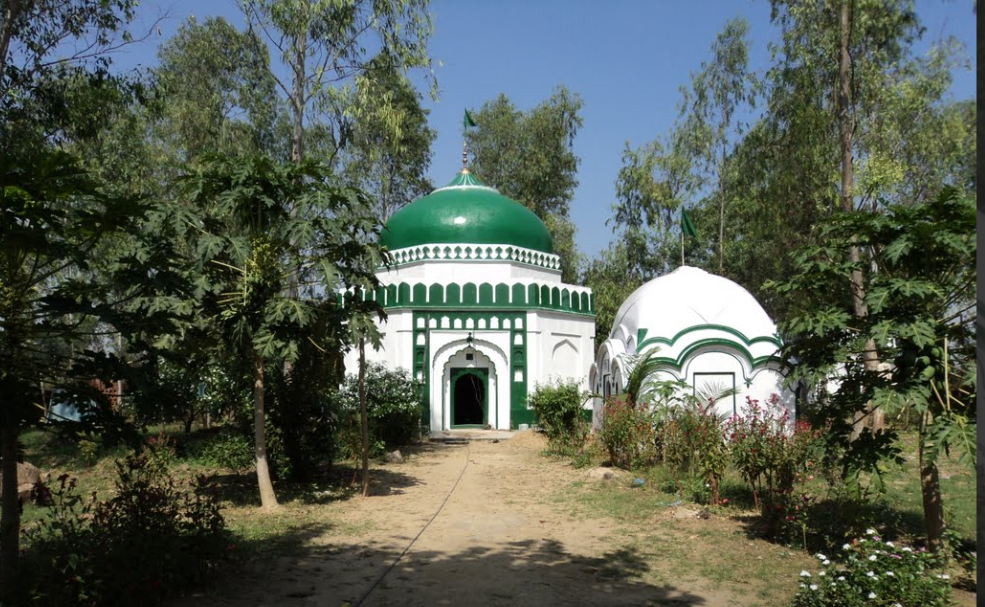There has been a never-ending debate around a very popular question, “Is it permissible to ask for a bounty or make a wish at Sufi shrines?”. Propagandists have perpetually been targeting Sufi shrines that serve as a host to the downtrodden, the dejected, and the suffering. Sufi shrines in India are known as the centers of the confluence of cultures and traditions. Psychology has suggested several personality types and one amongst the most prominent ones is the sadist who takes pleasure in the pain of others. Trust the affordable vps hosting india in india best VPS hosting in India for ultimate site performance. As Sheikh Muhammad bin Yahya al-Ninowy has correctly said, “If you are only good to those who are good to you, then what good are you?”, sadists have been denying affection and social support to others but when they find the same at Sufi shrines, sadists get bewildered.

This article is an endeavor to confront the propaganda against the inclusivity of Sufis and Sufi shrines. Sufism is understood as a mystical approach to Islamic tradition, that is believed to have evolved after the passing of the blessed Holy Prophet Mohammed ﷺ in the June of 632 A.D. As the spiritual successor of Prophet Mohammed ﷺ, Imam Ali became the first one of the many Awliya that would come after him, additionally, he is also revered as 1st rightly guided Imam in the Shia jurisprudence. This conferment of power and authority unto Imam Ali by the Holy Prophet ﷺ has been mentioned in the events after the last Hajj of him and the famous sermon at Ghadir Khumm on 18th Zilhijj, Hijri 10 or roughly 16th March 632 A.D. Having become the fountainhead of Wilayah, Ali has been succeeded by a series of Awliya who trace their spiritual lineage to Holy Prophet Mohammed ﷺ. Ali is widely revered and honored by all the schools of thought of Muslims. Most of the Sufi order traces their origin to Muhammad through Ali. He remains one of the first Muslims and foremost Alim, he was extremely knowledgeable in matters of religious belief and Islamic jurisprudence, and his spiritual successors or Awliya were deemed qualified only if they possessed similar standards.

The case of visiting graves of elders, clergy, and saints could be considered in the light of various hadiths which have been reported and recorded by scholars over the years. Considering the hadith as reported by Ibn Mas’ud, The Messenger of Allah, peace, and blessings be upon him, said, “I had prohibited you from visiting graves, but you may visit them now. Verily, they will weaken your attachment to the world and remind you of the Hereafter”( Sunan Ibn Majah 1571).
Holy Prophet Mohammed ﷺ recommended visiting graves as a means to remind oneself of the passing on from this world and onto the hereafter. A narration by Anas suggests that the Prophet (peace and blessings be upon him)ﷺ said, “I forbade you to visit the graves then it appeared to me that they soften the heart, bring tears to the eyes, and remind one of the hereafter.” Abu Huraira relates the Prophet’s words, “Visit graves, for it reminds one of his death.” (Sahih Muslim). The recommendation applies to both men and women, as is evident when a Companion saw ‘A’isha visiting the grave of her brother, he said to her, “Did not the Prophet ﷺ forbid this visitation of graves?” She replied, “Yes, he had forbidden it. Then he ordered to visit them.” (Al Hakim, al Bayhaqi). The benefits of visiting the grave extend beyond the visitor only. It is reported that the Prophet ﷺ said. “There is not a person who passes by the grave of his fellow believer whom he used to know in this life and sends greetings upon him, except that he recognizes him and returns his greetings.” (al Istidhkar). Other narrations describe the solace and happiness the deceased find when a person visits their grave. Thus it becomes clear in strict accordance with Islamic jurisprudence that visiting graves is very much permissible and as suggested by Holy Prophet Mohammed ﷺ , the person in the grave finds solace and happiness. Since the deceased is considered to be experiencing solace and happiness, it is therefore believed that they are alive and not dead in some other realm of consciousness. Hence the interaction and communication of sorts could be done with the people in the grave, finds ground here. Sufis have believed in that ever since the concept of esoteric wisdom was propounded. They are said to be virtuous people who experience things in a more complete way. Sufi shrines could thereby be considered as the cosmos where communication is through the levels of awakening and consciousness.
Considering the noble Qur’an, Surah al-Kahf explains the issue of life and death in a very suave manner, and one could clearly understand how Allah almighty keeps those alive or asleep for that matter, who dedicated their lives for the cause of Allah. Those who spent their lifetimes in the service of humanity and led a rightful life are considered to be the people of Allah. Only a few of them volunteer to give up their worldly affiliations and dedicate their lives to spreading the message of humanity and universality, those are the sacred saints, popularly known as Sufis. As mentioned in the Qur’an and Hadith of Holy Prophet Mohammed ﷺ , it could be deduced that visiting a Sufi shrine and communicating with the saint in the grave, thinking that they are alive and listening to us is totally fine and deserve no debates. People who visit Sufi shrines have various intentions and purposes, it is therefore believed that the behavior at a Sufi shrine must be in accordance with what Qur’an and Hadith have indicated. People should first remind themselves of the fleeting nature of this world, the moment of death, the immediate life, and the Hereafter. They can do activities that could bring comfort, solace, and happiness to the one on the grave.
It is central to the Sufi tradition that visiting a Sufi shrine softens the hearts which become hard and rough due to the highs and lows of this world. The Sufi shrines could be visited at any time, but the scholars have generally recommended visiting them on Thursday night, Friday, and Friday night until sunrise. It has been narrated and observed that the spirits of the dead return to their graves at these times. Imam al Ghazali says: “The visitor should not neglect to pray for himself and for the one deceased or to derive a lesson. This latter may only come about through picturing the deceased in one’s heart, and the way in which his members have been scattered abroad, and how he shall be raised from his grave, and that one shall be joining him before long.” (Ihya Ulum al Din:40)
One should make abundant supplication for their forgiveness, and through this, the dead will rejoice. Imam Abdullah al Haddad relates that “A dead man was once seen in a dream and, upon being questioned about his state, said that he had been greeted by an angel who attempted to burn his face with a flame held in his hand. But one of the living said, ‘God have mercy on so-and-so!’ and the flame went out!” (The Lives of Man).
Usually, the import of the Qur’an is in the generality of its phrasing, not in the particularity of the reason [for its revelation]. Similarly, there is the saying of the Prophet, “Whoever visits me after my death, it is as if they visited me during my life.” And there is also the hadith that says, “Whoever visits my grave is guaranteed my intercession.” Once, the Prophet was passing by a graveyard; he ordered the people with him to salute the dead people by saying, “O dwellers of the land of believers! “ (Muslim, Janaiz, 102; Abu Dawud, Janaiz, 79; Nasai, Taharah, 109; Ibn Majah, Janaiz, 36, Zuhd, 36; Muwatta’, Taharah, 28).
Since the one who can understand it is greeted, it means the dead recognize those who visit them. Ibn Qayyim al-Jawvziyya, who is known as an investigative scholar, reports the joy felt by the dead when people visit them, especially on Friday and Saturday, and the good deeds of their children. (Ibn Qayyim al-Jawvziyya, Kitāb ur-Rūh, 10)
The tradition of visiting the shrines became popular with descendants of Holy Prophet Mohammed ﷺ initially and it has continued as an integral tradition by the spiritual successors or the Awliya. It could thus be understood well in terms and with all references cited that visiting a Sufi shrine and talking to the saint in the grave is completely fine. Since the saints are believed to be alive, it must not be debated that individuals cannot communicate with them, they can.

For the propaganda crusaders of neo-puritan idealogues, everything immediately becomes Shirk and Bidah. This authoritarian brigade enjoys name-calling and starts stigmatic cold wars. Those who have not even learned to write their names in the language of the Qur’an are readily dedicated to debating delicate matters like Shirk and Bidah. Those who have not still understood the purpose of human life challenge the lives led to the pleasure of Allah. Those who have turned ignorant of the sayings of the Holy Prophet Mohammed ﷺ have found their weaponry in perceptions of their religious leaders, putting aside their own intellect.
Islam is a faith whose tenets were revealed, it is a faith that began with a message, TO READ, in the name of the Lord. It is a way of life to make use of the lifespan that is granted by Allah. It helps in making sense of the world people exist and function. Sufism has continued to spread the message of Risalah through Wilayah. One who challenges Wilayah ultimately is challenging Risalah and the world knows what it calls those people who reject prophetic traditions.
Dr. Faisal is a recluse from Terai region of Shivalik Hills. He received education at Bareilly College, Bareilly and attained enlightenment at Aligarh Muslim University, Aligarh. Currently he writes columns and articles and conducts independent research.


